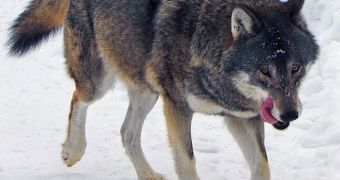Yale University researchers say that models seeking to predict how species will go extinct on account of global warming should also take into account species interactions. Currently, these models treat species as separate, non-interacting entities.
Food webs are some of the most important elements of habitats and ecosystems. They are made up of interacting species, with top predators at the very end of the food chain. The new research suggests that scientists failed to properly take into account these species' roles in biodiversity loss.
The Yale team admits that creating “species interaction networks” is an extremely complex task, and that this is why very few efforts were made to compile such datasets. Including them in climate models – which are already very complicated themselves – makes the endeavor nearly impossible.
However, this needs to be done if experts want to obtain the best possible results. For example, current models suggest that 15 to 37 percent of all species could go extinct because of global warming. The new investigation suggests that these estimates may be too low.
“Currently, most models predicting the effects of climate change treat species separately and focus only on climatic and environmental drivers,” explains researcher Phoebe Zarnetske, in the latest issue of the top journal Science.
“But we know that species don't exist in a vacuum. They interact with each other in ways that deeply affect their viability,” adds the expert, the primary author of the paper, and a postdoctoral fellow at the Yale School of Forestry & Environmental Studies.
It could be that top consumers, including predators and herbivores, have a very large effect on the species below them in the food chain. Experts refer to these consumers as biotic multipliers, meaning that they increase other species' risk of going extinct.
“Climate change is likely to have strong effects on top consumers. As a result, these effects can ripple through an entire food web, multiplying extinction risks along the way,” Yale professor of ecology and study coauthor, Dave Skelly, explains.
This type of study is extremely important if humans want continued access to natural resources. The work was sponsored by the US National Science Foundation (NSF) and the Yale Climate and Energy Institute, e! Science News reports.
“Species interactions are necessary for life on Earth. We rely on fisheries, timber, agriculture, medicine and a variety of other ecosystem services that result from intact species interactions,” Zarnetske explains.

 14 DAY TRIAL //
14 DAY TRIAL //